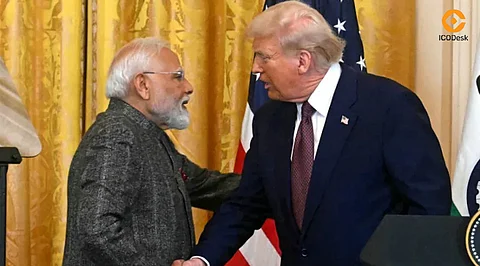

Next month, Indian Prime Minister Narendra Modi is scheduled to pay a visit to the United States to attend the 80th United Nations General Assembly (UNGA). However, with tensions still unresolved on trade and bilateral ties, a concrete decision on his visit has not been made by the Indian government.
In the series of events, the Modi visit, with a tentative label, would have him addressing the UNGA in New York, with his speech to be provisionally slotted on the 26th of September in the forenoon. If the trip were to become a reality, it would lend itself to a high-stakes meeting with President Trump, hence, a chance at giving some stability to an otherwise shaken bilateral relationship.
The United Nations General Assembly session will be from September 9 through 29, with the High-level General Debate scheduled for September 23 through 29. According to the provisional list of speakers, the United States Executive is expected to inaugurate the Debate on September 23, followed by other heads of state, including India's Prime Minister, on September 26.
Nonetheless, sources talking to Hindustan Times highlighted that India has so far not made a decision on Modi's participation. An official said that the prime minister's appearance was "very unlikely" at this stage, adding that such decisions are often made only when events are close by.
A trip at this juncture would be particularly significant given the chill in bilateral U.S.–Indian relations at present. Trump Administration had earlier imposed a tariff of 25 percent on Indian goods, followed by a second levy of 25 percent as a punitive measure against India for its continued purchase of Russian oil.
These, together, would amount to the highest tariffs at 50 percent for any U.S. trading partner. New Delhi has called the tariffs "unjustified" and is in the process of negotiating a bilateral trade agreement to lessen tensions.
Trade talks have met with repeated setbacks, returning to disputes over access within agricultural and energy markets. U.S. negotiators remain hopeful that a deal can be closed by October, but India has remained adamant about protecting its interests, especially those of its farmers and domestic industries.
Had the trip gone, this could have become a vital diplomatic platform. Modi's speech at the UNGA would have also reinforced India's positioning on international matters. At the same time, bilateral meetings, including with President Trump, would have offered a strategic window to recalibrate frosty ties. Still, official confirmation remains nowhere to be found, and the final decision of Modi's trip to the U.S. is likely to be made within the next couple of weeks.